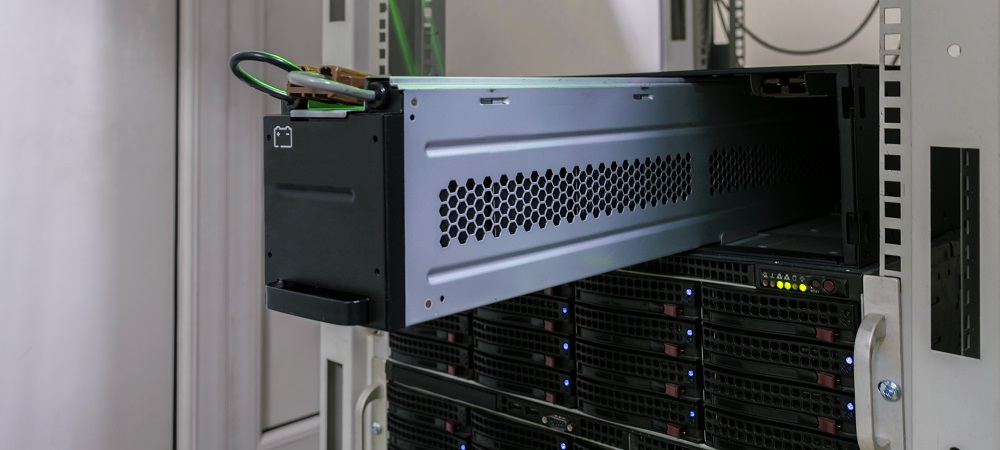Sanjay Kumar Sainani, Global SVP and CTO, for Data Centre Business Unit of Huawei, explains to us why lithium-ion batteries in data centres feature longer service life, less footprint, low load bearing requirements, simple maintenance, environmental protection and reliable stability than lead-acid batteries.
Global authoritative consulting firm, Frost & Sullivan, recently released Analysis of Lithium Ion Battery in Data Centres. The report provides industry trends and insights, including the comprehensive interpretation and analysis on Li-ion Battery Application Status and Requirements, Data Centre Li-ion Battery Market Size, Data Centre Li-ion Battery Market Application Scenario Analysis and Solutions to Improve Reliability of Li-ion Battery.
According to Frost & Sullivan, Li ion batteries account for 15% of data centre battery market in 2020, but with the increasing use of lithium-ion batteries in data centres, this is expected to increase to 38.5% by 2025.
Compared with lead-acid batteries, Li-ion batteries feature longer service life, less footprint, low load bearing requirements, simple maintenance, environmental protection, and reliable stability. Therefore, Li-ion batteries will become the first choice for data centre backup power in the future.
Benefits of Li-ion batteries
1. Initial cost
One of the primary concern for data centre operators regarding Li-ion batteries is the significantly higher initial costs. Li-ion batteries are typically 1.3 to 2 times more expensive than lead-acid batteries.
Steady decline in battery price is likely to be witnessed, with prices to eventually go below US$100 per kWh by 2028. This trend is expected to offset the concern on initial cost.
Prices forecast
2. Reliability
Reliability is one of the bottlenecks in the development of lithium-ion batteries to large-scale energy storage technologies. Generally, the reliability problems of lithium-ion batteries are combustion or even explosion. The root causes of these problems are internal short circuits inside the batteries and internal thermal runaway caused by external factors such as overcharge, squeeze, puncture, and drop.
3. Compatibility
Data centre operators who are considering to replace their existing battery string with Li-ion are concerned if their existing UPS system is compatible with Li-ion technology. They are concerned if the installed UPS system will operate property with Li-ion batteries as the charging circuit and controls for Li-ion differ from lead-acid batteries. They feel that significant hardware and embedded software upgrades may be required.
To improve the reliability of Li-ion battery, Frost & Sullivan propose the following recommendations:
Select Stable Cell Materials. Among all the cell materials, LFP has highly stable molecular structure and no fire when thermal runaway. LFP decomposition does not generate O2, which dramatically reduce the explosion risk. For example, nail test is used to verify the reliability of LFP. After a short-circuit thermal runaway occurs inside the cell, no fire and explode.
Ensure System Level Reliability. The BMS management system of lithium batteries is particularly important. Multi-level BMS management must be used to identify faults and maintain in advance to control thermal runaway in the early stage to prevent fires. For example:
•The reliability of the cell is predicted by the internal short circuit algorithm.
•The BMS system has the current sharing control function.
Combine With Prevention and Fire Fighting. The reliability of Lithium battery depends on prevention. Once a fire occurs, the impact must be minimised to prevent the fire from spreading in the cabinet. In addition, the cabinet must be equipped with fire extinguishing methods. When a fire occurs, the cabinet can be started to quickly extinguish the fire. In-cabinet fire extinguishing modes can be module-level or cabinet-level.
Please Click the Link Below to Download the Full Report:
https://e.huawei.com/en/material/material-interception?intercepturl=https%3a%2f%2fe.huawei.com%2fen%2fmaterial%2fnetworkenergy%2fdc-energy%2f86d73ab583eb405cbb24b08b9a4a01c0&type=material&interceptid=86d73ab583eb405cbb24b08b9a4a01c0
Product recommendation: Huawei SmartLi UPS
Due to Huawei’s strong technical strength and rich experience in the power supply industry, Huawei continues to invest in R&D and innovation. Huawei keep pursuing higher power density and more advanced li-ion battery energy storage technologies in data centres, to meet the new requirements of simplified architecture, high reliability, and simplified O&M for power supply system of cloud data centres, and helps customers accelerate digital transformation.
Source: Frost & Sullivan


